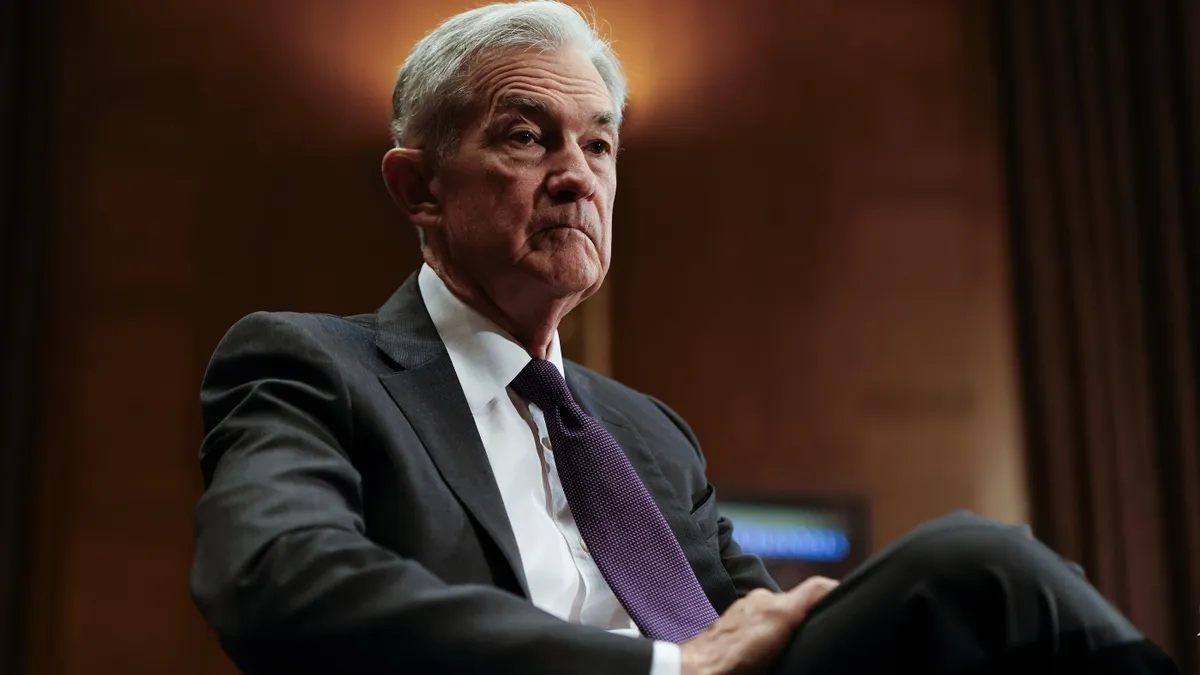
On Friday, Federal Reserve Chairman Jerome Powell is set to deliver his final address as Fed chair during the prestigious Jackson Hole Economic Symposium in Wyoming. This high-profile event, organized by the Federal Reserve Bank of Kansas City, gathers economists and central bankers from across the globe to discuss monetary policy amidst the breathtaking backdrop of the Teton mountain range.
Powell's speech comes at a crucial time as the central bank faces increasing pressure from the White House to consider lowering interest rates. His remarks will focus on the current economic outlook, mere weeks ahead of the Fed's next rate-setting meeting. Additionally, he will discuss the ongoing challenge the central bank faces in balancing its dual mandate: combating inflation while ensuring maximum employment.
Investors will be keenly listening for any hints regarding potential rate cuts at the upcoming Fed policy meeting in September. However, some experts advise caution. Joe Brusuelas, U.S. chief economist at RSM, states, "I wouldn't hold my breath waiting for Jay Powell to tip his hand on whether the Fed is going to cut rates." After a significant rate cut of one percentage point last year, the Fed has maintained steady interest rates since December. Although many investors anticipate a quarter percentage point cut in September, Brusuelas believes the decision will be a tight call, remarking, "This is far closer to a coin flip than what's being commonly acknowledged." With inflation rates still surpassing the Fed's target of 2%, there is concern among policymakers that external factors, such as tariffs, might intensify inflationary pressures.
The labor market has shown signs of weakening, which could argue for a more accommodative monetary policy. Recent data from the Labor Department indicated that job growth in July fell short of expectations, with previous job gains for May and June being revised downward. In light of these developments, Fed policymakers will receive another month of data on both inflation and employment before making any decisions on interest rates. Powell may emphasize that he and his colleagues are keeping their options open as they navigate these competing pressures.
In his address, Powell will also delve into the Fed’s long-term interest-rate policy, which has recently undergone a comprehensive five-year review. Unlike many central banks that focus solely on controlling inflation, the Fed is tasked with promoting both stable prices and maximum employment. This dual mandate often necessitates a delicate balancing act, as the methods employed to combat inflation—such as raising interest rates—can negatively impact job growth, while lowering rates to stimulate employment might drive prices higher.
Following its last long-term policy review in 2020, the Fed committed to not preemptively raising interest rates solely based on low unemployment figures. The Fed recognized the benefits of a robust job market, especially for marginalized groups, and indicated a willingness to tolerate slightly higher inflation to sustain job gains. However, the recent surge in inflation has compelled policymakers to reassess their strategies.
Fighting inflation often entails making unpopular decisions, and the Fed's independence is designed to protect it from political pressures. Nonetheless, this independence is currently under scrutiny, particularly from President Trump, who has vocally criticized Powell and other Fed officials for not being more aggressive in their rate cuts. Trump has even referred to Powell as "Too Late," and has called for the resignation of Fed governor Lisa Cook, further intensifying the scrutiny on the Fed's autonomy.
As Powell’s term as Fed chairman nears its end next May, the president will have the opportunity to select his successor and fill at least one additional vacancy on the Fed’s governing board. Despite the mounting political pressure, Powell has consistently emphasized the importance of maintaining an independent central bank, stating, "Having an independent central bank has been an institutional arrangement that has served the public well." Brusuelas echoes this sentiment, warning that undermining the Fed's independence could lead to significantly higher inflation, ultimately burdening the middle and working classes.
As Powell prepares for his final speech, all eyes will be on Jackson Hole, where the future trajectory of U.S. monetary policy may be at stake.